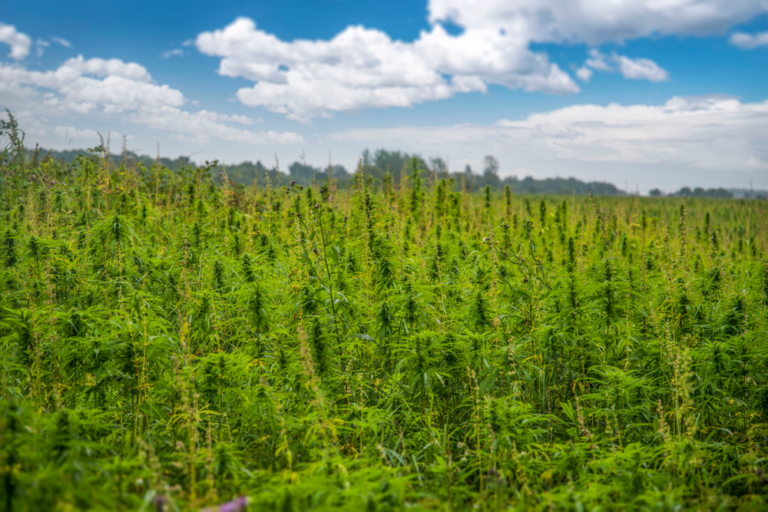Hemp in the Spotlight
Hemp has been getting a lot of attention from various parts of the federal government lately, but little of it is hitting mainstream press. What’s going on? On one hand, items from Congress may be buried because most of the bills introduced don’t go very far, so it is hard to have high expectations when a new one is proposed — but it is exciting to see cannabis becoming a more regular topic of discussion among more legislators. On the other hand, the rules coming out at the agency level are very important to consider and comment on because they will directly affect how the industry operates and how it is regulated now and in the near future, which is obviously very important to your business!
A Congressional Bill. On September 4, Reps. Kurt Schrader (D-OR) and Morgan Griffith (R-VA) introduced a bill (H. R. 8179) To make hemp, cannabidiol derived from hemp, and any other ingredient derived from hemp lawful for use under the Federal Food, Drug, and Cosmetic Act as a dietary ingredient in a dietary supplement, and for other purposes. Interestingly, the “short” title for the proposed act is cited as “Hemp and Hemp-Derived CBD Consumer Protection and Market Stabilization Act of 2020.” Being not that much shorter than the entire bill, which barely exceeds 300 words, it is interesting that the bill is being slated as a means of “market stabilization.”
USDA. On September 2, USDA announced the approval of hemp production plans under the U.S. Domestic Hemp Production Program for Maine, Missouri and the Cow Creek Band of Umpqua Tribe of Indians, bringing the total number of approved plans to 58. The approvals are based on the 2018 Farm Bill mandate for USDA to develop a regulatory oversight program for hemp, which included provisions for USDA to approve hemp production plans submitted by states and Indian tribes. In accordance with the resulting interim final rule, state and tribal plans provide details on practices and procedures that enable hemp producers in their jurisdictions to operate according to their individual plans and in compliance with federal laws.
With that many approved plans and the interim final rule generally, there are a lot of producers that are now completing the 2020 hemp growing season, and USDA wants to learn from the insights they gained after operating for a growing season. In order to get that insight, USDA has reopened the comment period for the interim rule. Specifically, they want to see comments and information regarding: (1) measurements of uncertainty for sampling; (2) liquid chromatography factor used for testing postdecarboxylation THC levels; (3) the disposal and remediation of non-compliant plants; (4) the negligence standards outlined in the interim rule; (5) documentation requirements for interstate commerce; (6) 15-day harvest-window sampling requirements; (7) sampling of hemp seedlings, microgreens, and clones when plants are not grown to maturity; (8) requirements for hemp in breeding and research programs; (9) sampling of whole plant vs. flower; (10) sampling methods for obtaining a representative sample of a crop; (11) training and certification of sampling agents; and (12) DEA registration of labs. The comment period is open until October 8, 2020.
DEA Interim Rule. Likely the most controversial is the interim final rule from the DEA, Implementation of the Agriculture Improvement Act of 2018, issued August 21. Although the DEA Summary of the rule states that it “merely conforms DEA's regulations to the statutory amendments to the CSA that have already taken effect, and it does not add additional requirements to the regulations,” numerous legal and industry experts are taking exception with the language of the rule dealing with THC levels.
As explained by Harris-Bricken Attorney Daniel Shortt, the rule would make “most hemp processing activities illegal if, at any point in processing hemp, the level of delta-9 THC increases beyond 0.3%– even if the hemp was remediated before it left the processor’s premises.” While the DEA is aware of the concerns, it seems to be downplaying them. But many in the industry are not. As Shortt went on to note: “Given the history of the DEA, especially when it comes to cannabis, we should not give the agency the benefit of the doubt. This is an agency that exists to fight the War on Drugs. In order to justify its existence, the DEA must ensure that the fight continues.”
But, like all federal agencies, the DEA does not have unchecked authority, and the interim final rule is now out for comment through October 20, 2020. As Shortt says, and HashTAG heartily agrees: Make your voice heard!





